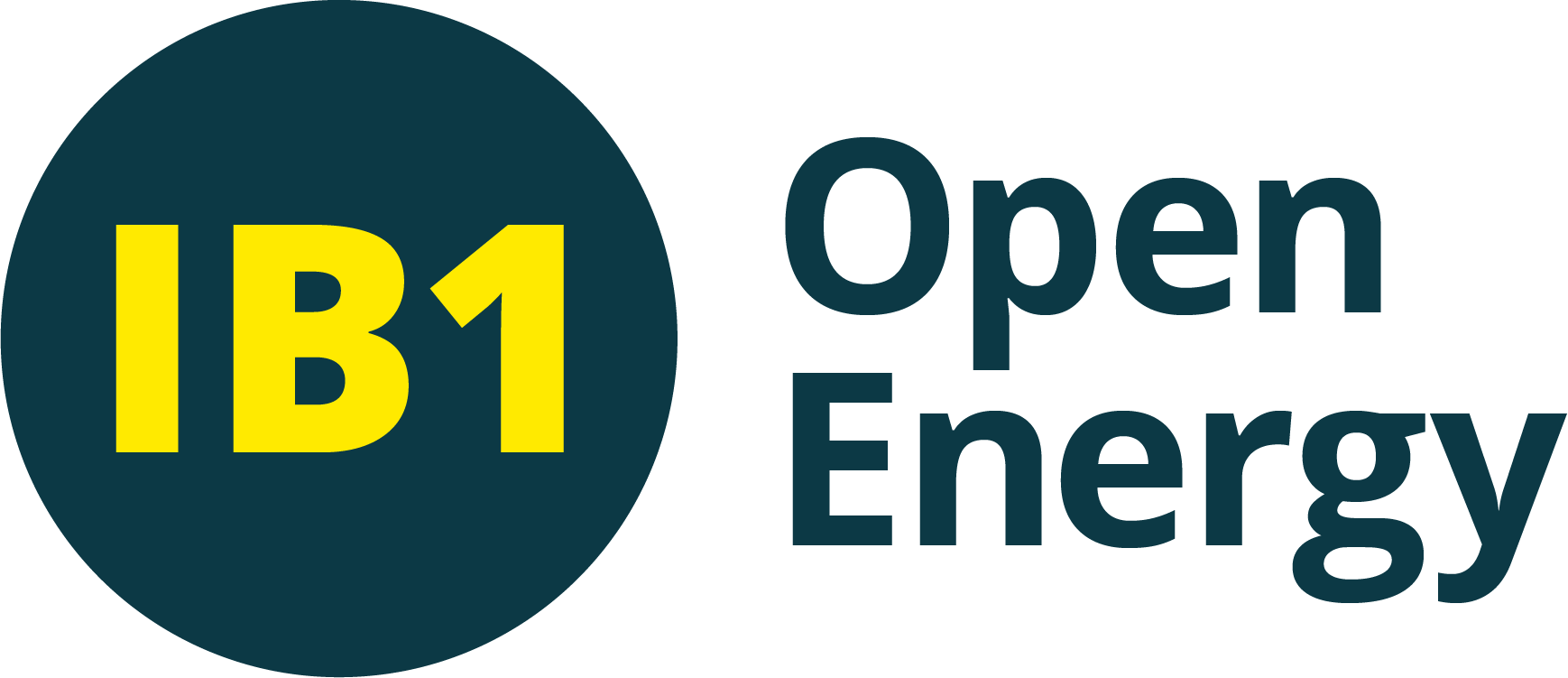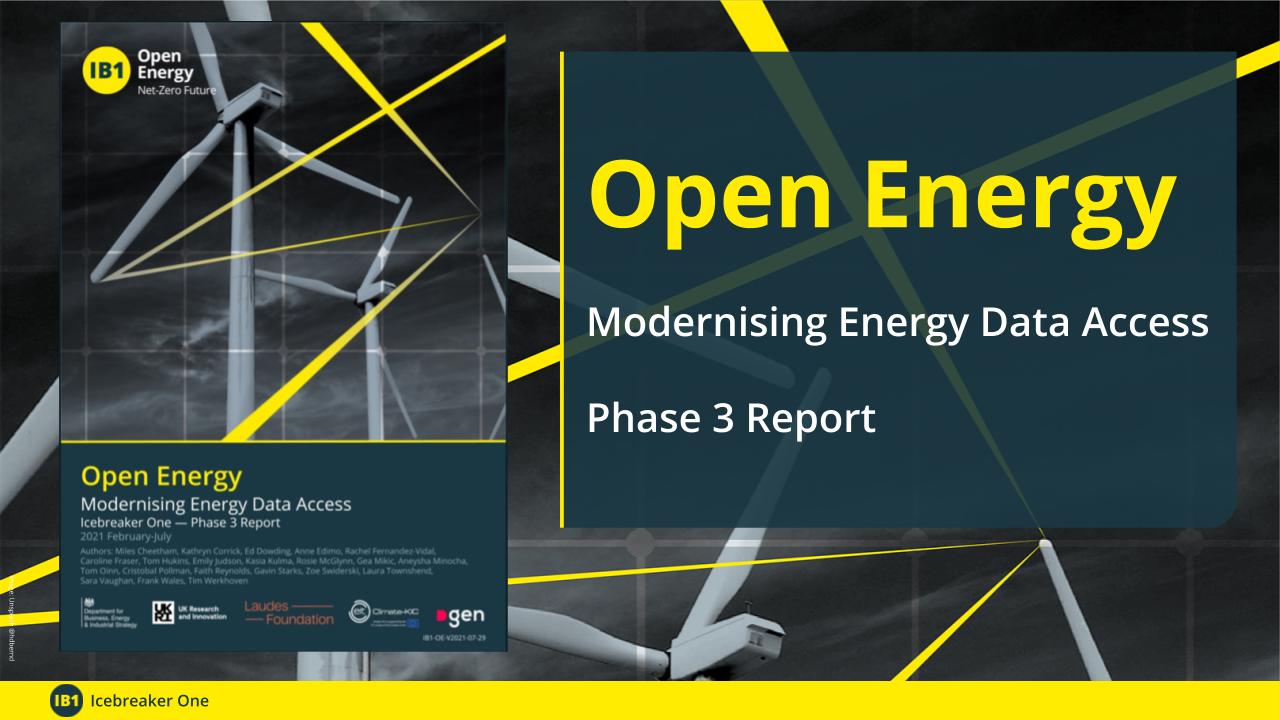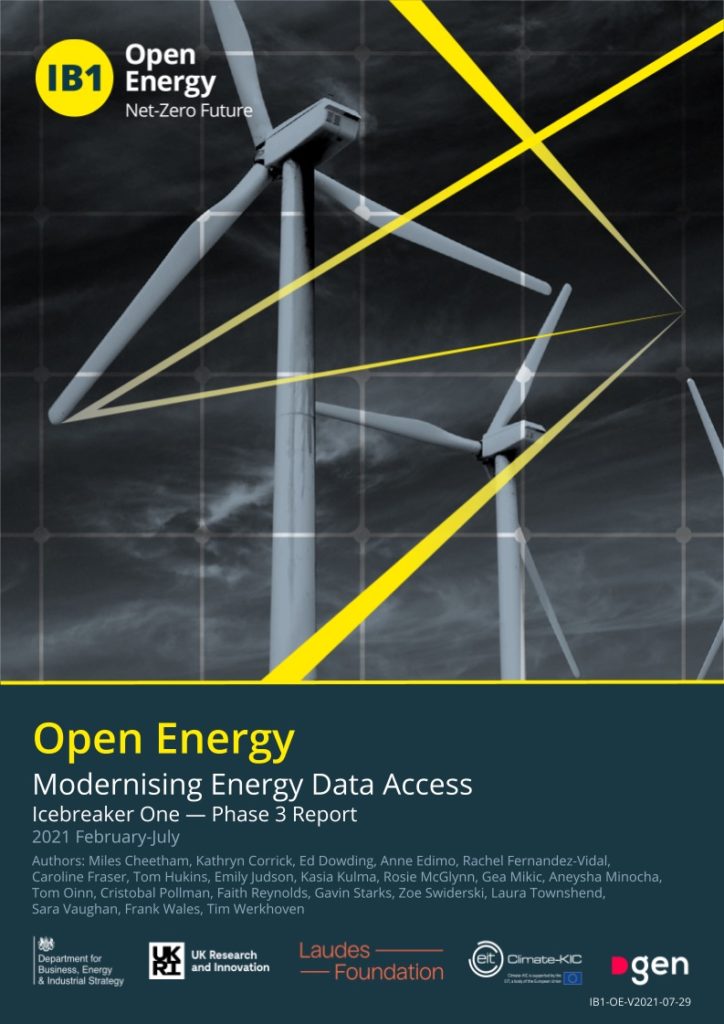This document is open for comment, click here for the report.
Executive Summary
Open Energy set out to make it easy to find, access and share energy data, to deliver a beta programme (using a core use case to help navigate priorities) with direct stakeholder engagement and a route to live services. It has delivered operational services for Energy Search and Access Control that are now online and market-facing.
It has delivered its main objectives and key results. These include substantial and material industry and stakeholder engagement and understanding of direct user needs. Throughout the programme we engaged with over six hundred people through Advisory Groups, the Review Track for seeking industry feedback, one-to-one conversations and webinars. Individuals in our Advisory Groups represented over 50 organisations. These included government, regulators, regulated entities, enterprise businesses, SMEs, startups and universities.
Future development must consider the following principles:
- A compulsion to participate
Data increases in value the more it is connected. Incentives must exist to mandate participation by the sector in open standards that enable interoperability and drive behaviours towards an open marketplace for data.
- Design for search
All solutions must be considered from a perspective of maximising cohesion and interoperability. Specifically addressing the needs for machine-integration for application developers, as well as direct service users. Machine-definitions of data licensing must be developed as in-scope for this work.
- Continuous, iterative development
All digital services are iterative in nature. The outputs from this work will be considered as a continuous and evolving process.
- Engagement with users and industry
Collaboration is critical to the development of this work from both a technical perspective (solutions must meet user needs) and from a cultural perspective (solutions must be co-designed, adopted, used and iterated upon with market participants).
Our model in the development of Open Energy has been to embrace these four principles. The business model for future development has been defined to address the long-term neutrality and operational sustainability of the services described herein.
Throughout the project we have worked in the open, with cross-sector industry advisory groups, public webinars, blogs, public documentation and continuous outreach. We also engaged with the BEIS-funded Energy Data Visibility Project to ensure cohesion across the two workstreams and enabled MEDApps winners to join our Beta Testing.
We reflect that, while ‘technical’, data should not be considered a ‘technology issue’. Further analysis will be required to understand the economic impacts and benefits of Open Energy as a whole, as well as the cultural and organisational barriers.
This work should be considered as contributory towards the National Data Strategy: design patterns established in energy will affect other sectors. Government and industry must work together to maximise market openness, including ensuring that appropriate governance is in place to help prioritise where, when and how regulatory intervention may be required.
The potential of Open Energy is not limited to the boundaries of the energy domain as there is significant scope to develop this work for export to other sectors.
Achievements and deliverables
Through tightly controlled programme management and risk-control processes, we successfully achieved engagement with target stakeholders and delivered against the planned Phase 3 development roadmap, including private and limited public beta testing. The services are now live. On completion of Phase 3, we will engage with industry on a ‘pilot’ basis building on learnings from this phase.
We have created market-facing operational services including Energy Search and Access Control. These services enable the discovery, access and usage of both Open Data and Shared Data.
Working with industry, we have developed the business model and a delivery plan for live service launch.
We have completed and delivered substantial documentation/guides that will lay the foundations for a long-term Code of Practice for the sector, including:
- Operational Guidelines – Version 1.0
- Contents: Introduction, Considerations before you start; Core policies; Guidance for Data Providers; Guidance for Data Consumers; Common security requirements; Metadata; Access control and capability grant language; Glossary.
- Contents: Introduction, Considerations before you start; Core policies; Guidance for Data Providers; Guidance for Data Consumers; Common security requirements; Metadata; Access control and capability grant language; Glossary.
- Membership documentation:
- Membership proposition and fee structure
- Definition of active membership
- Beta testing and technical documentation:
Together, these form the basis of a potential ‘Open Energy Standard’ upon which long-term industry engagement can be anchored (through both voluntary and regulated engagement).
Approach — working collaboratively, and in the open
Development work was documented and communicated openly throughout the programme. This included innovative direct stakeholder engagement as well as public webinars and written updates on our websites.
Open Energy Advisory Groups were formed to convene industry expertise to help understand how the UK may better modernise energy data access and to engage with a broad base of stakeholders. This allowed us to shape our work and ensure that Open Energy really was designed by the industry for the industry. Each advisory group was formed through open recruitment including experts from across the energy sector to ensure a wide range of subject matter experts representing a cross section of private and public players. The Advisory Groups were directed by a Steering Group, representing both government and industry stakeholders, who helped to reinforce the strategy and disseminate the work and ensure the delivery of our objectives. These groups were further supplemented by a document Review Track group and the publication of public consultations.


